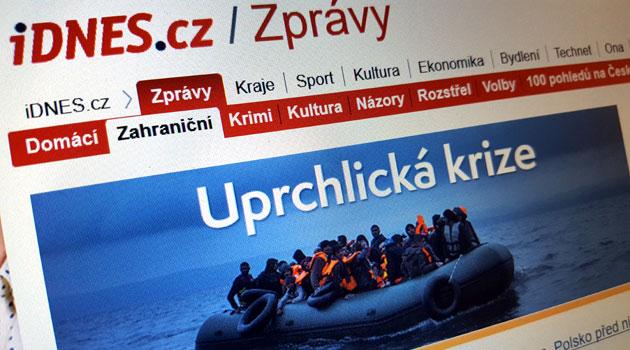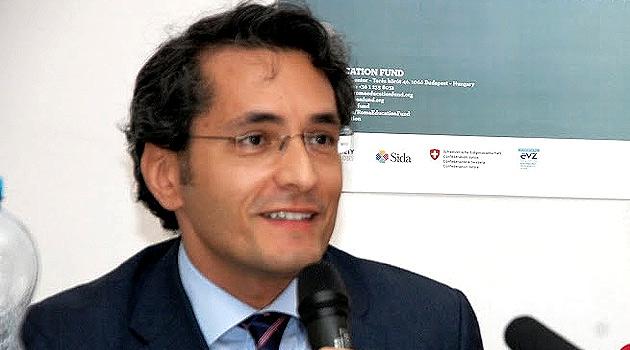Commentary: In a country with almost no refugees, why are they feared?

“In two towns in the east of Germany on Friday evening small groups of local residents clashed with asylum- seekers. The scuffles resulted in four people suffering slight injuries,” the Deutsche Presse-Agentur reported on Saturday, 1 October.
“Police are investigating whether the assaults were motivated by xenophobia. Cases of violence between Germans and immigrants in the east of the country are increasing,” reported news server iDNES.cz that same day, making the item its top story and going on to report on how young refugees in another town were fighting among themselves.
Let’s imagine what a similar report about the Czech Republic itself might sound like:
Young people have been brawling in two Czech villages. Four of them were slightly injured, one suffered a black eye, another has a gash on his arm and the rest are complaining of headache. “Jan Novák”, the Chief Constable in the village of “Horní Dolní”, dismisses such incidents: “Around here, unfortunately, this is absolutely common, on the weekends guys just fight each other to be macho.” Such clashes between youths are happening repeatedly.
That would be a fine news item – but it wouldn’t catch anybody’s attention. How, then, is it possible that Czech news servers are positively buzzing with similar reports from Western Europe recently?
Is this the result of a targeted campaign, or is there not enough sensational news coming out of the Czech lands themselves? Of course it’s common, all over the world, for journalists to be tasked with keeping their readers’ eyes glued to their media and not the competition.
To increase readership, they need “attractive” news items that draw attention. One engine for high media readership is the sparking of fear.
People who are afraid will listen to, read, or watch reports about what they fear. Never in the Czech media or on its social networks has there ever been so much reporting about events in the neighboring country of Germany as there is today.
Judging by the Czech media, civil war will break out there any minute. One million refugees – and already four people lightly injured!
Naturally that’s not all, though. There are some numbers coming from Germany that are actually alarming.
The number of violent assaults has indeed sharply risen there. Most of these are attacks being committed against the refugees, not by them.
German Police say neo-Nazis and racists, not Islamists, are responsible for this violence. What will readers who are not acquainted with that fact deduce from the Czech news, though?
All they will learn is their good fortune to have a Government that will not let any refugees into the country. The news items about the horrible things happening on the “other side of the hill” are actually calming: We in the Czech Republic can once more believe we are an oasis of calm in the confused sea that is Europe.
Another reason these news items are so tempting is that people here are subconsciously terrified – of themselves. Suddenly they look like barbarians compared to the rest of Europe, because they don’t want to give a helping hand to even a fraction of the people now fleeing terror and war.
How is that possible, when “we” were never like that before? The liberating explanation is provided precisely by these horrifying news items from abroad.
It must be because “we” here in the Czech Republi immediately, from the beginning, recognized what those refugees are really like. Only the Germans could have been so foolish as to not have seen that right away.
When all is said and done, many people will always find it good to read how badly the “others” are doing. All news items sending the message that “we aren’t like those others” naturally pleases such readers.
That kind of reporting also increases the readership of the media outlets that publish them. Politicians could change this, if they wanted to.
